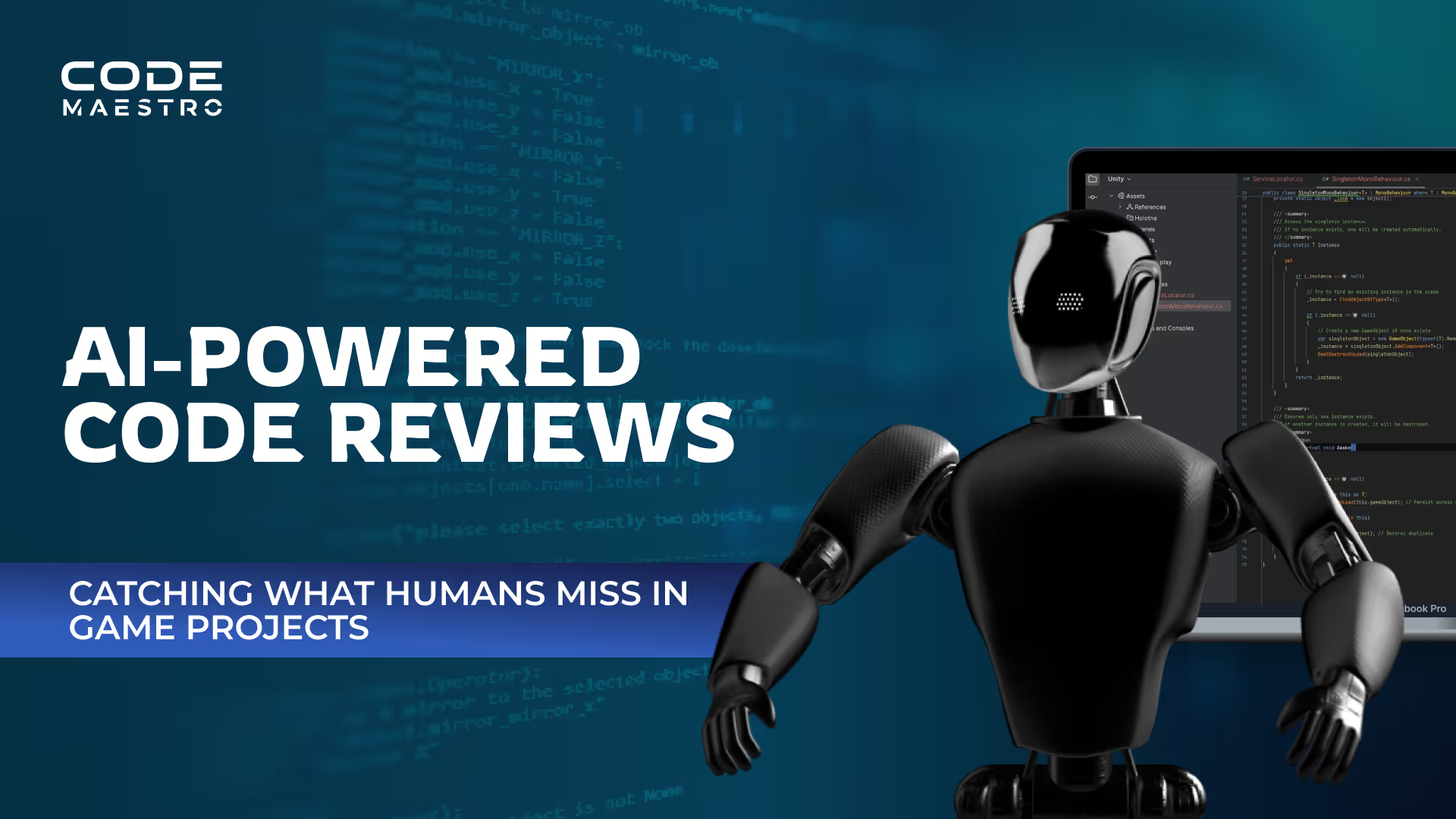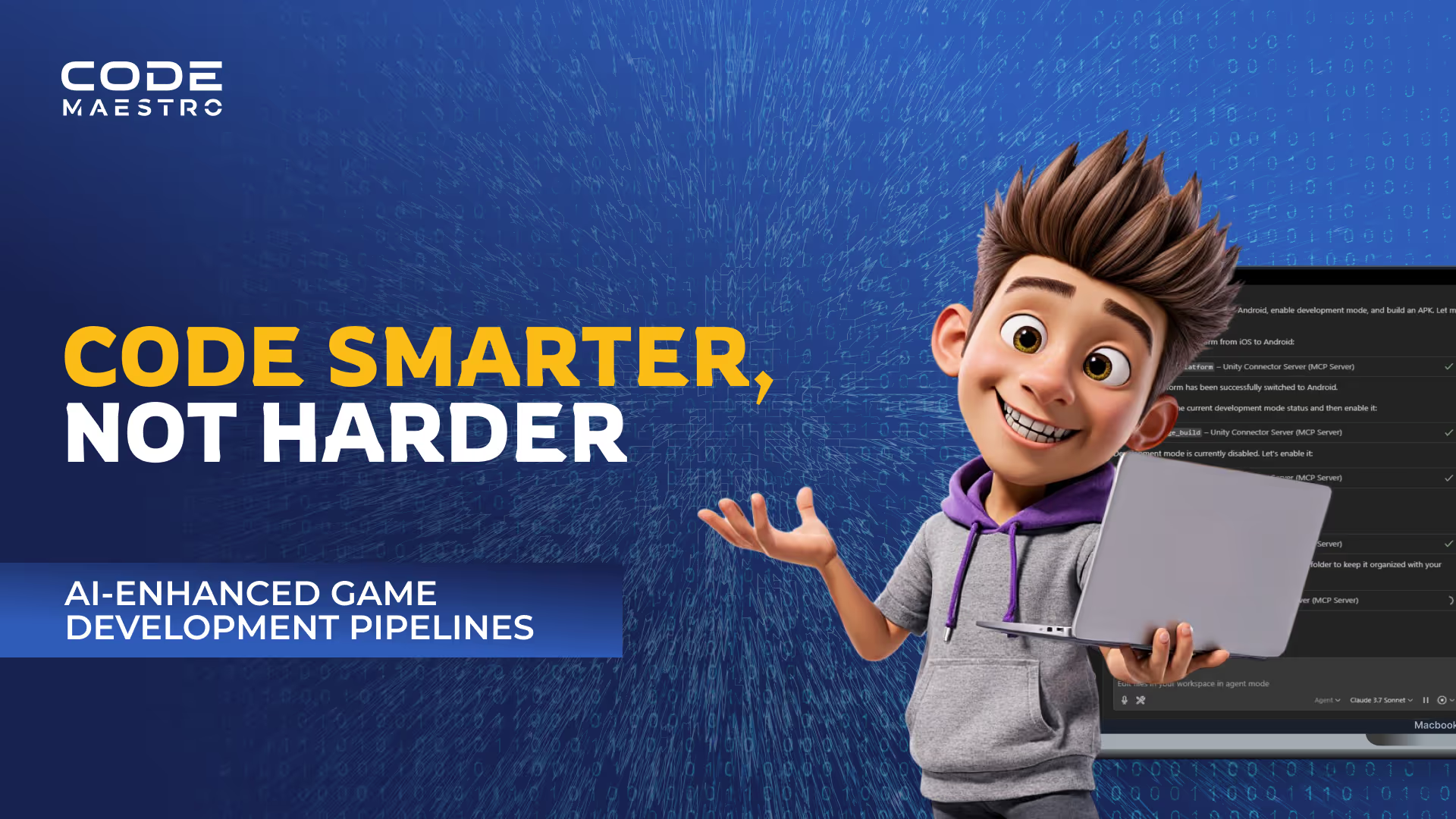Intelligent Code Refactoring: Using AI to Clean Up Game Projects
Table of Contents
What is code refactoring and why it matters in long-term projects
Refactoring is all about reorganizing existing code so it’s cleaner and easier to work with — without changing what the game actually does. In long-term projects, this is more than a nice-to-have; it’s survival. Over the months (and often years) of development, quick fixes pile up, old solutions linger, and unnecessary scripts hide in the corners. That build-up slows the team and makes bugs harder to spot. A good refactor clears this “technical debt,” leaving the project leaner, easier to expand, and less fragile. Add AI into the mix, and the process becomes faster, more accurate, and far less risky, even when dealing with messy or complex systems.
Common Refactoring Needs
Most refactoring work in games falls into three main areas: readability, modularity, and performance. Readability means any developer — even one new to the project — can follow the code without confusion. Modularity is about breaking down big, tangled scripts into smaller pieces that can be reused or updated without disturbing unrelated systems. And performance? That’s trimming the fat: cutting wasteful calculations, streamlining loops, and managing resources so the game runs smoothly everywhere. Keep these three in check, and a codebase stays healthy no matter how big it gets.
How AI Identifies Code Smells, Dead Code, and Inefficiencies
AI tools can scan a project’s code in minutes and surface issues that would take a human hours to find. They look for patterns, dependencies, and execution flow to catch trouble early. That includes code smells like repetitive logic or needlessly complex functions; dead code such as unused variables and abandoned classes; and inefficiencies like redundant calculations or object creation that drags down performance. Spotting these early means fixes can happen before the problems snowball into real headaches.
Tools That Offer Auto-Suggestions for Function Extraction, Renaming, and More
The newer generation of AI coding tools doesn’t just point out problems — it offers solutions. They might recommend pulling a chunk of code into its own function for clarity, renaming variables so they make more sense, simplifying overcomplicated logic, or reformatting files to keep everything consistent. It’s not about replacing the developer’s judgment; it’s about giving quick, targeted options that speed up the whole refactoring process and keep the codebase tidy.
Benefits of AI-Assisted Code Refactoring
When AI is part of the workflow, the gains show up fast. A cleaner codebase means better maintainability, so features can be updated without fear of breaking half the game. It makes onboarding smoother, because newcomers can read and understand the code more quickly. And it speeds up debugging, since issues stand out instead of hiding in clutter. Over time, these benefits stack up, leading to fewer production delays and more stable releases.
Case Study: Applying AI to Refactor an Old Unity Project
One small studio recently tackled a five-year-old Unity project that had been touched by many different hands. Using AI-assisted tools, they uncovered unused scripts, spotted redundant logic, and flagged inefficient update loops. The AI suggested precise fixes, and in just two weeks, load times dropped by 20%, frame rates became steadier, and the code was far easier to maintain — all without breaking gameplay.
Limitations and Human Oversight Needed
AI is powerful, but it’s not magic. It can miss project-specific rules, misunderstand complex systems, or accidentally introduce subtle issues. That’s why human review is non-negotiable. Developers still need to test changes, confirm that gameplay feels right, and decide when AI’s suggestions fit the bigger picture. Think of AI as a skilled assistant — helpful, fast, but still needing guidance.
Audit Your Game Code with AI-Based Tools Today
Hidden inefficiencies slow projects more than most teams realize. AI refactoring tools can uncover them, clean the code, and make future updates easier. Start an audit now and give your game a smoother, more stable foundation.



%20Tiles%2C%20Variations%20%207%E2%80%9315%20CPI%20Drop%20How%20Code%20Maestro%20tripled%20playable.avif)